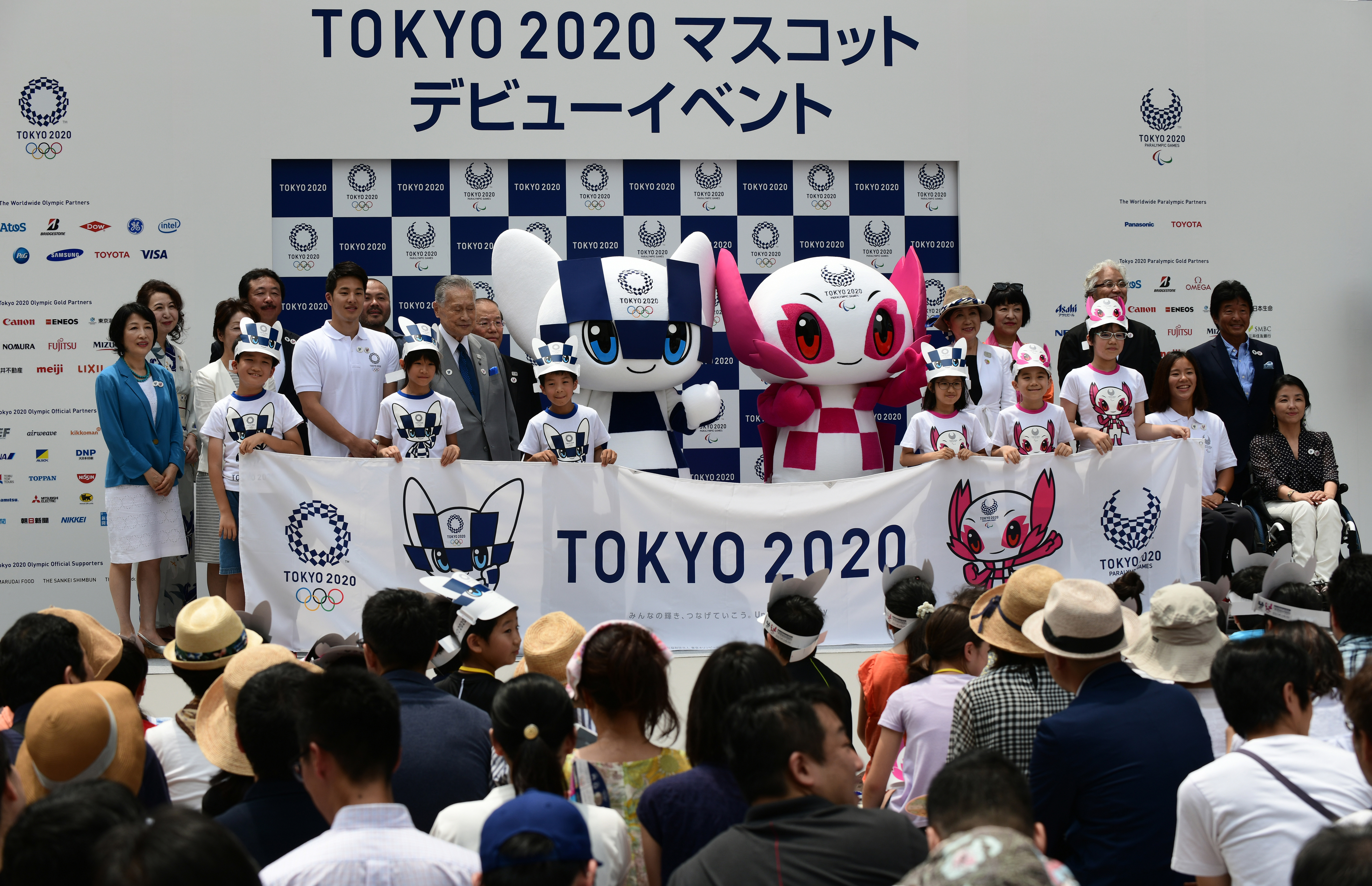
FILE – Mascots for the Tokyo 2020 Olympics Games Miraitowa (centre L) and Someity (centre R) pose during their debut event in Tokyo on July 22, 2018.
The organisers of the Tokyo 2020 Olympics and Paralympics Games announced the names of the mascots on July 22. / AFP PHOTO / Kazuhiro NOGI
Tokyo 2020 organizers on Friday unveiled plans for a center to monitor extreme weather, after concerns the city’s scorching summer could cause heatstroke or even deaths during the Games.
The next Olympics will also overlap with Japan’s typhoon season, and the potential for extreme conditions has become a major headache for the event after a string of weather-related disasters.
Organizers will work with a private weather company and the government’s meteorological agency to analyze climate data in areas with Olympic venues, a Tokyo 2020 official told AFP.
The center will send warnings about weather-related emergencies, including the risk of heatstroke and even evacuation information if necessary, she added.
Last year Japan was rocked by a number of weather emergencies, including record rainfall in the west of the country that killed more than 200 people.
A deadly heatwave also gripped the country during the summer, raising concerns about outdoor events during the Games, particularly the marathon.
Japanese medical groups have warned the event could “lead to deaths” from heatstroke.
In December, Tokyo 2020 officials announced they would move back the start of the marathon to “between 5:30am and 6am”. They had previously moved it back to 7am.
Organizers have toyed with various ways of beating the heat including the introduction of daylight saving time — an idea that appears to have fallen by the wayside.
Last time Japan hosted the Olympics, in 1964, the competition was held in October to avoid the hot summer conditions.
IOC Olympic Games Executive Director Christophe Dubi told reporters later Friday that what 2020 organizers were doing in terms of heat countermeasures was “stunning”.
“I feel that only in Japan would you go to that kind of detail,” he said, citing preparations for providing shade and water for athletes and spectators.
If 2020 takes place in the same conditions that prevailed last summer in Tokyo, “the Organising Committee is really, really ready to counter the situation,” said Dubi.